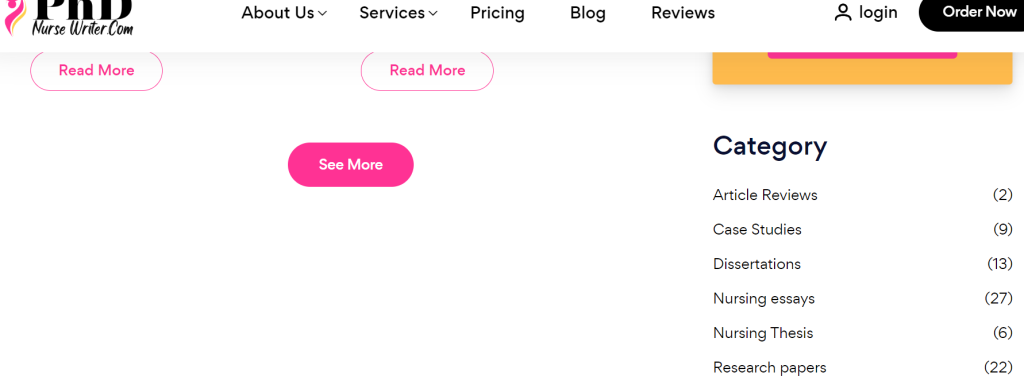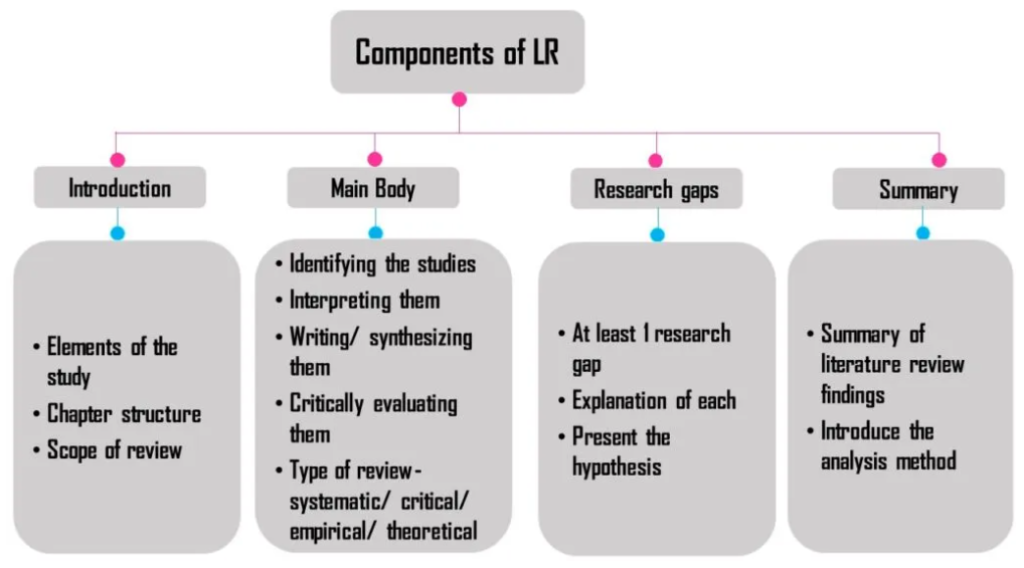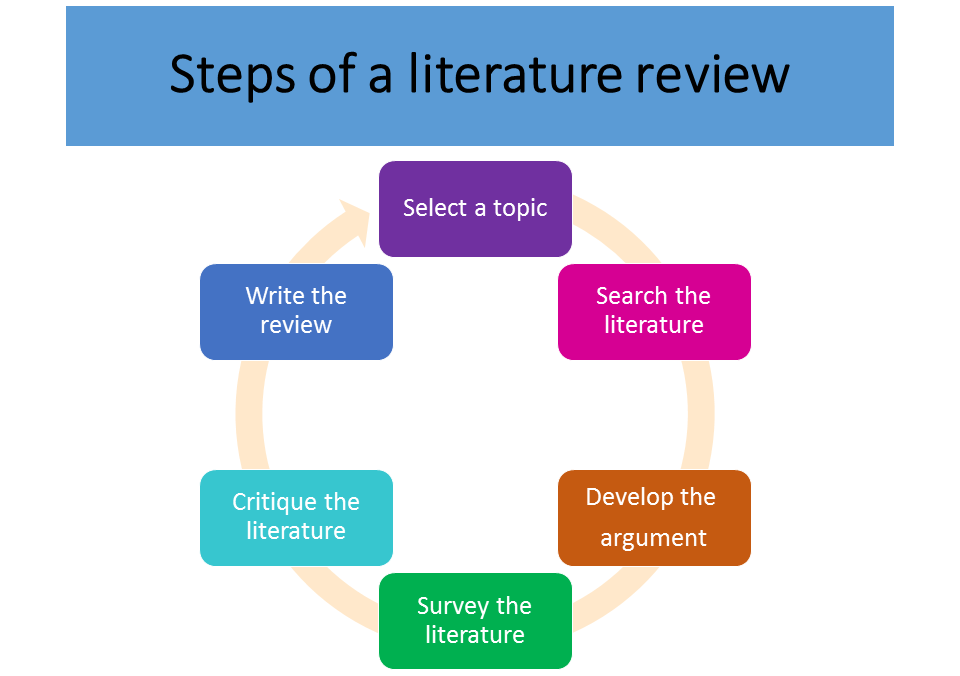
Table of Contents
The nursing paper literature review is a critical component of any research project, providing a foundation for understanding the current state of knowledge on a particular topic. It’s a rigorous process that involves identifying, evaluating, and synthesizing relevant research to inform your own study.
Crafting a strong nursing paper literature review requires more than simply summarizing existing literature; it involves critical analysis, drawing connections, and presenting a cohesive narrative that informs your research question and contributes to the advancement of nursing knowledge.
This guide will provide a comprehensive overview of the essential steps involved in writing a compelling nursing paper literature review, from choosing your topic to presenting your findings.
Steps to Crafting a Nursing Paper Literature Review
1. Defining Your Research Question and Scope
Before embarking on a nursing paper literature review, it’s crucial to define a clear and focused research question. This question will guide your search for relevant literature and provide a framework for your analysis. The question should be specific, measurable, achievable, relevant, and time-bound (SMART).
For instance, instead of asking “What are the benefits of aromatherapy for managing pain in patients?” a more precise and focused question might be “What is the effectiveness of lavender aromatherapy in reducing postoperative pain intensity in adult patients undergoing abdominal surgery?”
Once your research question is established, define the scope of your nursing paper literature review. Determine the specific population, intervention, comparison, and outcome (PICO) elements you will focus on. This will help you narrow your search and select relevant studies for inclusion.
2. Conducting a Thorough Literature Search
A robust nursing paper literature review relies on a comprehensive and systematic search for relevant literature. Start with a well-defined search strategy that includes key terms related to your research question and PICO elements. Use a combination of databases, such as CINAHL, PhD Nurse Writer, PubMed, and PsycINFO, to broaden your search scope.

Keywords and Search Strategies:
- Utilize Boolean operators: Use keywords and Boolean operators (AND, OR, NOT) to refine your search. For example, “pain management AND aromatherapy AND postoperative” will yield more relevant results than a simple search for “pain management.”
- Explore different keyword variations: Consider using synonyms and related terms to capture a wider range of relevant research.
- Search for specific study types: Specify your search to include only relevant study types, such as randomized controlled trials (RCTs) or qualitative studies, depending on your research question.
- Utilize filters and limits: Most databases offer filters and limits to refine your search results. For example, filter by language, publication date, and study design to narrow down your search.
3. Evaluating and Selecting Relevant Literature
Once you have a comprehensive list of potential articles, you need to evaluate them for relevance and quality. This involves critically assessing the methodology, results, and conclusions of each study.
Key Considerations for Evaluating Studies:
- Study design: Assess the methodological rigor of the study, considering its design, sample size, data collection methods, and analysis techniques.
- Population and setting: Determine whether the study population and setting align with your research question and PICO elements.
- Relevance to your research question: Ensure that the study directly addresses your research question and contributes to your understanding of the topic.
- Quality of evidence: Consider the overall quality of the study, including its internal validity and reliability.
- Publication bias: Be aware of the potential for publication bias, which refers to the tendency for studies with positive or statistically significant results to be more likely to be published.
4. Synthesizing and Organizing the Literature
After evaluating the selected studies, you need to synthesize and organize the findings to create a cohesive and informative narrative.
Strategies for Synthesizing Literature:
- Categorize studies: Group similar studies based on their research question, methods, or findings.
- Identify themes and trends: Look for recurring patterns, inconsistencies, or gaps in the literature.
- Compare and contrast studies: Analyze the similarities and differences between studies, focusing on key findings, methodological approaches, and conclusions.
- Evaluate the strength of evidence: Assess the overall strength of the evidence based on the quality and consistency of the findings.
5. Writing the Literature Review
The nursing paper literature review should be a clear, concise, and well-organized presentation of the relevant literature.
Key Elements of a Well-Written Literature Review:
- Introduction: Begin with an overview of the topic, defining key terms and outlining the purpose and scope of your review.
- Body: Present the findings of the selected studies, synthesizing the information and highlighting key themes and trends.
- Discussion: Analyze the findings, identify gaps in the literature, and discuss the implications for future research and practice.
- Conclusion: Summarize the key findings of your nursing paper literature review and provide a brief overview of the current state of knowledge on the topic.

Writing Style and Format:
- Use a clear and concise writing style: Avoid jargon and technical language that may not be accessible to your audience.
- Maintain an objective tone: Present the findings of the literature without expressing personal opinions or biases.
- Use proper citations and references: Follow a consistent citation style, such as APA or MLA, to ensure accuracy and avoid plagiarism.
- Organize your review logically and sequentially: Use headings, subheadings, and transitions to guide the reader through the information.
6. Integrating the Literature Review into Your Nursing Paper
The nursing paper literature review should seamlessly integrate into your overall paper. It should provide context and support for your research question, hypothesis, and methodology.
Key Points to Remember:
- Highlight the relevance of the literature: Explain how the literature supports your research question and contributes to your understanding of the topic.
- Connect the literature to your own research: Show how your research builds upon existing knowledge and addresses gaps in the literature.
- Use the literature to justify your research methods: Explain how the literature informed your choice of research design, sampling techniques, and data collection methods.
7. Addressing Common Challenges in Writing a Nursing Paper Literature Review
Writing a nursing paper literature review can present several challenges, but with proper planning and attention to detail, these obstacles can be overcome.
Common Challenges:
- Identifying relevant literature: Finding the right studies for your review can be time-consuming and challenging.
- Evaluating the quality of evidence: Assessing the methodological rigor and reliability of studies requires critical thinking and judgment.
- Synthesizing and organizing the findings: Combining and interpreting information from multiple sources can be a complex task.
- Maintaining an objective and unbiased tone: Avoiding personal opinions and biases while presenting the literature can be difficult.
- Avoiding plagiarism: Ensuring proper citation and referencing is essential to avoid plagiarism and maintain academic integrity.
Tips for Overcoming Challenges:
- Break down the task into smaller steps: Divide the review process into manageable stages to make it less overwhelming.
- Seek guidance from mentors and peers: Discuss your research question and review process with experienced researchers and fellow students.
- Utilize available resources: Take advantage of library databases, search engines, and online tools to enhance your literature search.
- Practice critical thinking and analysis: Develop your ability to evaluate research studies and synthesize information from different sources.
- Use citation management software: Tools like EndNote and Zotero can help you manage references, avoid plagiarism, and streamline the writing process.
8. Tips for Writing a Stellar Nursing Paper Literature Review
Here are some additional tips to ensure your nursing paper literature review stands out:
- Go beyond simply summarizing the literature: Analyze the findings, draw connections, and offer critical insights.
- Present a clear and compelling narrative: Organize your review logically, using transitions and connecting sentences to guide the reader.
- Focus on the key findings and implications: Highlight the most important information and its relevance to your research question and nursing practice.
- Engage with the literature: Discuss the strengths and limitations of the studies, identify areas for future research, and provide a clear and concise conclusion.
- Proofread and edit your work carefully: Ensure that your review is free of errors in grammar, punctuation, and spelling.
Pitfalls to Avoid When Writing a Literature Review
A literature review is a crucial part of any academic paper, and nursing paper literature reviews are no exception. It provides a comprehensive overview of existing research on a specific topic, highlighting key findings and identifying gaps in knowledge. However, many students make common mistakes that can weaken the quality and impact of their reviews. Here are some of the most frequent errors:
1. Lack of Focus and Direction:
- Missing a clear research question: A literature review should not be a simple list of summaries. It must address a specific research question or argument. Without a clear focus, the review will lack direction and coherence.
- Too broad of a scope: Choosing a vast topic can make it challenging to cover all relevant literature. Narrowing the focus and identifying specific areas of interest is essential.
- No clear structure: A disorganized review is difficult to follow and can make it challenging for readers to understand the main points. Employing a logical structure, such as chronological, thematic, or methodological, is crucial for clarity.
2. Inadequate Research and Synthesis:
- Insufficient literature search: A thorough review requires exploring various databases, journals, and resources to gather relevant literature.
- Uncritical evaluation of sources: A critical analysis of sources is crucial. Assess the methodology, limitations, and validity of each study before drawing conclusions.
- Missing relevant studies: A comprehensive review requires a complete understanding of the current research landscape. Including relevant studies ensures a well-rounded and informed review.
- Insufficient synthesis: A literature review should not simply summarize individual studies. It must synthesize and analyze the findings, identifying trends, contradictions, and gaps in knowledge.
3. Poor Writing and Presentation:
- Lack of clarity and conciseness: A literature review should be written in a clear and concise manner. Avoid jargon and unnecessary technical details.
- Insufficient citations and references: Accurate and consistent referencing is essential for credibility.
- Missing discussion and implications: A literature review should not simply present existing research; it should also discuss the implications of the findings and suggest directions for future research.
4. Common Mistakes in Nursing Paper Literature Reviews:
- Over-reliance on anecdotal evidence: Nursing paper literature reviews must rely on robust research evidence, not personal experiences or opinions.
- Lack of ethical considerations: Nursing paper literature reviews should always be sensitive to ethical considerations, particularly when discussing vulnerable populations.
- Ignoring the impact of social determinants of health: Nursing paper literature reviews should acknowledge the social factors that influence health outcomes.
Avoiding these common mistakes can help ensure that your literature review is comprehensive, insightful, and impactful. It is crucial to remember that a literature review is not merely a summary of existing research but a critical analysis that contributes to the body of knowledge.
Examples of Nursing Paper Literature Reviews
Example 1:
Nursing Paper Literature Review: The Impact of Mindfulness Meditation on Patient Anxiety Levels
This nursing paper literature review explores the growing body of research on the efficacy of mindfulness meditation in reducing anxiety levels among hospitalized patients. The review examines a range of studies, focusing on the diverse populations studied, intervention methodologies, and reported outcomes.
Key findings reveal that mindfulness meditation interventions consistently demonstrate positive effects on reducing anxiety in patients, leading to improved sleep quality, decreased pain perception, and increased feelings of control and well-being. This nursing paper literature review highlights the potential of mindfulness meditation as a valuable adjunct to traditional nursing care for alleviating anxiety and improving the overall patient experience.
Further research is needed to explore optimal implementation strategies, identify patient subgroups who may benefit most, and address the challenges associated with integrating mindfulness meditation into standard nursing practice.
Example 2:
Nursing Paper Literature Review: Exploring the Use of Virtual Reality in Pain Management
This nursing paper literature review examines the evolving role of virtual reality (VR) technology in managing pain among patients across diverse clinical settings. The review analyzes studies evaluating the effectiveness of VR interventions for acute and chronic pain, focusing on various pain types, patient populations, and VR application methodologies.
The findings suggest that VR can effectively distract patients from pain perception, offering a non-pharmacological approach to pain management. VR interventions have demonstrated a potential to reduce pain intensity, improve pain tolerance, and enhance patient satisfaction. This nursing paper literature review emphasizes the need for further research to establish standardized protocols for VR implementation, assess long-term effects, and address potential limitations, such as accessibility and cost-effectiveness.
Overall, this nursing paper literature review underscores the growing evidence supporting the use of VR as a promising tool in pain management, offering nurses a valuable addition to their toolkit for providing patient-centered care.
Frequently Asked Questions About Nursing Paper Literature Review
1. What is a nursing paper literature review, and why is it important?
A nursing paper literature review is a comprehensive analysis of existing research on a specific nursing topic. It’s essential for several reasons:
- It provides a foundation for your own research: By understanding what’s already been done, you can identify gaps in knowledge and focus your research on meaningful areas.
- It helps you develop a strong theoretical framework: A literature review can help you identify relevant theories and concepts that can guide your research.
- It strengthens your credibility: Demonstrating your understanding of the existing literature shows that your research is informed and relevant.
2. How do I choose a topic for my nursing paper literature review?
Choosing a relevant topic for your literature review is crucial. Consider these factors:
- Your interests: Choose a topic that genuinely interests you, as you’ll be spending a significant amount of time researching it.
- Relevance to your field: Select a topic that aligns with your area of nursing practice or future career goals.
- Feasibility: Ensure there is enough existing research on your chosen topic to support a comprehensive nursing paper literature review.
3. What are the different types of nursing paper literature reviews?
There are several types of literature reviews, each with its unique purpose:
- Narrative review: Provides a general overview of the topic, summarizing key findings and highlighting areas of agreement and disagreement.
- Systematic review: Uses a rigorous and systematic approach to identify, evaluate, and synthesize research findings, often focusing on specific interventions or outcomes.
- Meta-analysis: Combines the results of multiple studies to provide a more powerful estimate of an effect.
4. How do I conduct a nursing paper literature review?
Conducting a nursing paper literature review involves several steps:
- Define your research question: Clearly identify the specific topic you want to explore.
- Identify relevant databases: Choose databases relevant to nursing research, such as CINAHL, PubMed, and Cochrane Library.
- Develop search terms: Use keywords and Boolean operators to narrow your search to relevant articles.
- Evaluate the quality of the studies: Assess the rigor and validity of the research you find.
- Synthesize the findings: Identify key themes and patterns in the research, and summarize the main conclusions.
- Write your review: Present your findings in a clear, concise, and organized manner.
5. What are the key elements of a good nursing paper literature review?
A good nursing paper literature review is:
- Comprehensive: Covers a wide range of relevant research on the topic.
- Critical: Evaluates the strengths and weaknesses of the studies reviewed.
- Synthesized: Organizes the findings into a cohesive and meaningful narrative.
- Well-written: Uses clear and concise language, and is free of grammatical errors.
Following these guidelines will enable you to conduct a high-quality nursing paper literature review, ensuring a valuable contribution to your research and academic career.
The Bottom Line
Crafting a high-quality nursing paper literature review is a demanding but rewarding task. By following these steps and incorporating the tips provided, you can create a comprehensive, insightful, and impactful review that contributes to the advancement of nursing knowledge and practice.

Remember, the nursing paper literature review is not just a requirement; it is a valuable tool for understanding the current state of knowledge, identifying research gaps, and guiding your own research efforts. By dedicating time and effort to this essential component, you will enhance the rigor and impact of your research, ultimately leading to a more robust and valuable contribution to the field of nursing.
Get Professional Nursing Paper Literature Review Writing Service
At Nursing Papers, we can help you with writing an authentic nursing paper literature review. Our service covers literature review writing, proofreading, editing, formatting and plagiarism removal. We offer professional academic writing help with nursing research papers, essays, case studies and dissertations.







